Common Skin Problems in Seniors & the Best Way to Deal With Them
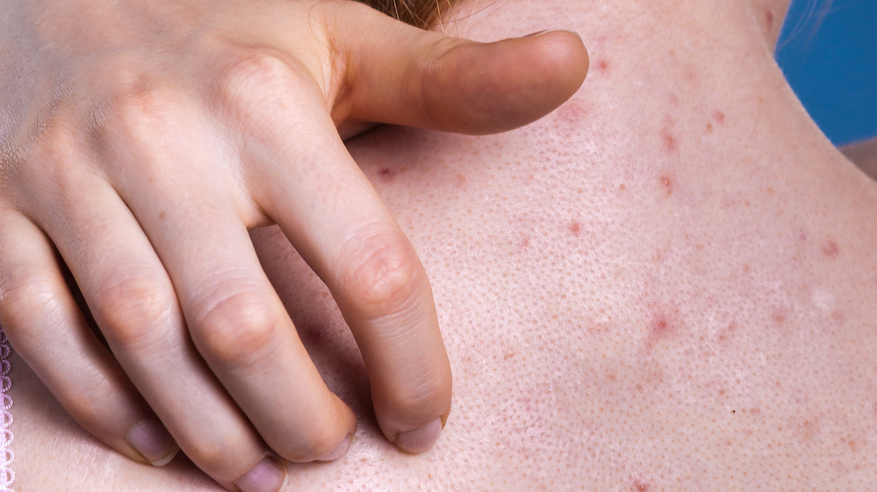
Skin problems are common issues in seniors. The causes and solutions vary, but we’re here to help you understand what causes them, how to treat them, and most importantly, how to feel your best! When it comes to your skin, there’s a lot that goes on behind the scenes. Sometimes even professionals need to learn about these things – so let’s get started.
What Causes Our Skin to Change as We Age?
Skin issues vary depending on your unique genetics and ethnicity. To understand your skin, you must know how it works – and how it changes over time.
Your skin is the largest organ in the human body and is a vital indicator of your health. It protects us from germs and other pathogens and keeps our insides from spilling out all over the place.
As we age, our skin changes for a variety of reasons. This doesn’t mean, however, that you should panic. It’s natural, and many older adults prefer their skin the way it is now.
Here are the most common reasons our skin changes:
1. Loss of Collagen
Seniors are most likely to develop this condition, resulting in a decrease in collagen production. Collagen is the protein that helps your body repair itself, so if it’s not present, your skin will start to show signs of aging.
As you age, your body becomes less able to produce collagen. Thinning skin makes it easier for bacteria to enter and cause infections. It can occur anywhere on your body, but it is most common on your face and neck.
2. Dry Skin
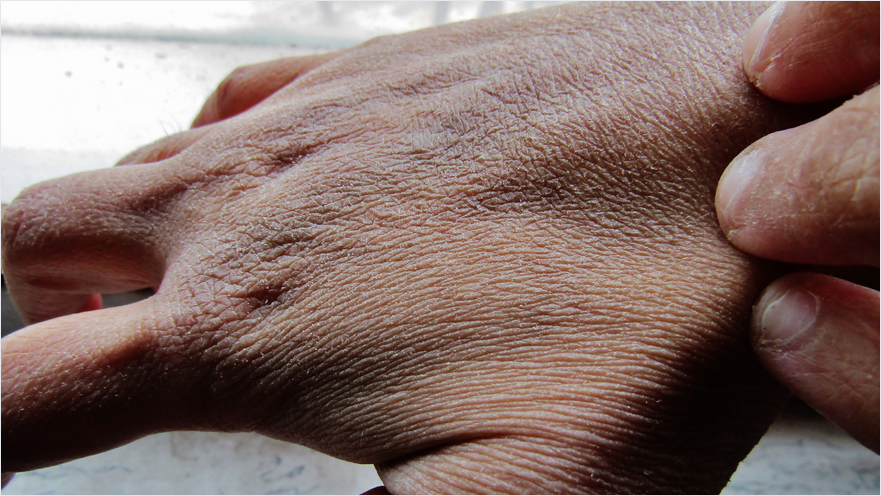
As our bodies slow down the production of oil called sebum and sweat glands’ ability to produce perspiration, they become less effective at regulating moisture levels within our bodies—and this can lead to dryness on our faces and throughout our bodies. Dry skin is most common on the lips, hands, elbows, and more.
3. Loss of Elasticity
Our skin is a living organ that is constantly changing as we age. One of the seniors’ most common problems is loss of elasticity, which makes the skin less resilient and leads to wrinkles.
Additionally, changes in skin elasticity can make the skin less supple, causing sagging.
4. Age Spots
These are dark spots that appear on the face and hands, usually in areas of sun exposure. They’re most common in people who have fair skin and light eyes.
Several factors, including sun exposure, smoking, and genetics, can cause age spots.
To prevent age spots, avoid the things that cause them. If you have light eyes and fair skin, use sunscreen whenever you go outside.
5. Lack of Sleep
Lack of sleep makes us look tired and stressed out, which makes our skin appear duller than usual. It also increases stress levels in our bodies, which can cause breakouts on our faces or backs if we’re already prone to acne problems (like many seniors are).
This is especially true for seniors trying to adjust to new sleeping patterns, whether it’s a change in their schedule or a sleep aid.
What Are Some Common Skin Problems That Affect the Elderly?
In addition to the normal signs of aging, some common skin problems affect seniors. Some of these issues can be prevented with proper care and attention, including:
1. Benign Skin Tumors
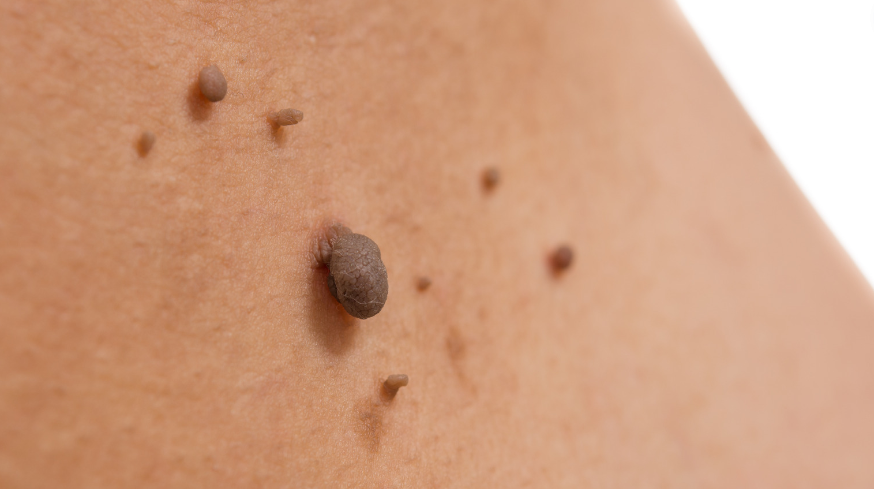
Benign skin tumors are common in seniors and can be treated with various methods.
First, it’s important to understand what a benign skin tumor is. A benign skin tumor is a non-cancerous growth without spreading or invading nearby tissues. They can occur anywhere on the body but tend to appear on areas with the most sun exposure—typically the face, arms, hands, and back.
That said, even if you have an area that has been exposed to the sun for many years and has developed a benign tumor, there’s no need to panic—they’re typically not dangerous and can be removed by an experienced dermatologist or general practitioner without any lasting effects.
However, suppose you suspect that your benign skin tumor is taking up more space than normal (and you’re worried it might be cancerous). In that case, it’s best to consult a doctor immediately who can determine whether or not the tumor needs to be removed surgically or by other means, such as radiation therapy or chemotherapy treatment options available today.
2. Eczema
Skin conditions such as eczema can cause dryness and itching. It typically occurs on the hands, feet, and forearms, but it can also appear on the face.
There are many different types of eczema, but atopic dermatitis is seniors’ most common type of eczema. Stress, allergies, or a poor diet can trigger it.
The best way to deal with eczema is to use moisturizers on a daily basis and avoid harsh soaps or detergents that can irritate your skin. You should also try to get more exercise and eat more fruits and vegetables in order to reduce stress levels and improve your overall health.
3. Pruritus
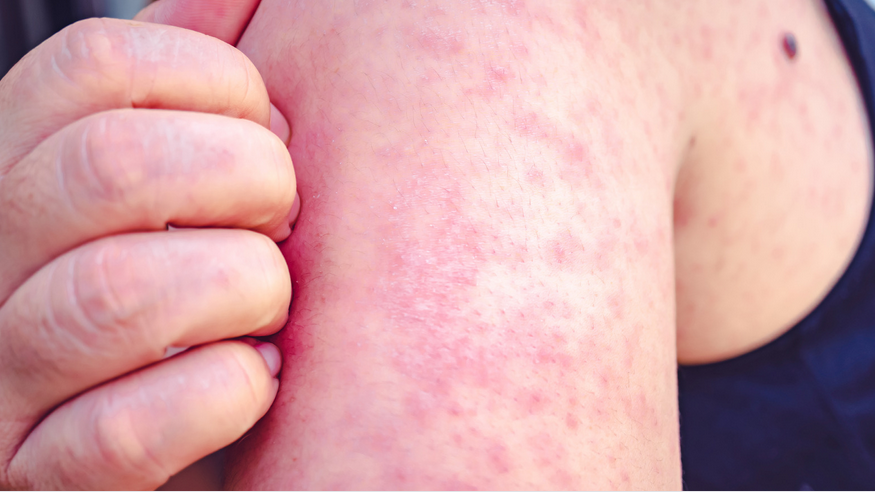
Pruritus is a common skin condition that affects seniors. An uncomfortable, itchy sensation characterizes it, often because of dry skin or irritation.
If your senior loved one has problems with pruritus, it’s essential to keep their skin moisturized and hydrated. You can do this by using a lotion or ointment on the affected areas of your body after every shower and bath.
If your senior loved one has other health issues, like diabetes or heart disease, they may need additional treatments like steroid creams or antihistamines to deal with their pruritus symptoms.
4. Rosacea
This chronic skin condition causes redness and flushing of the face in response to heat, stress, or certain foods. It can also cause blemishes, bumps, blisters, and sores on the front.
Rosacea is common in seniors due to the decreased ability to control temperature and blood flow to the skin with age. The best way to deal with rosacea is to avoid triggers like alcohol and spicy foods (both of which can make it worse) and hot baths or showers (which can also make it worse). If you still have trouble coping with symptoms despite your best efforts, consult your doctor for treatment options.
5. Thinning Skin
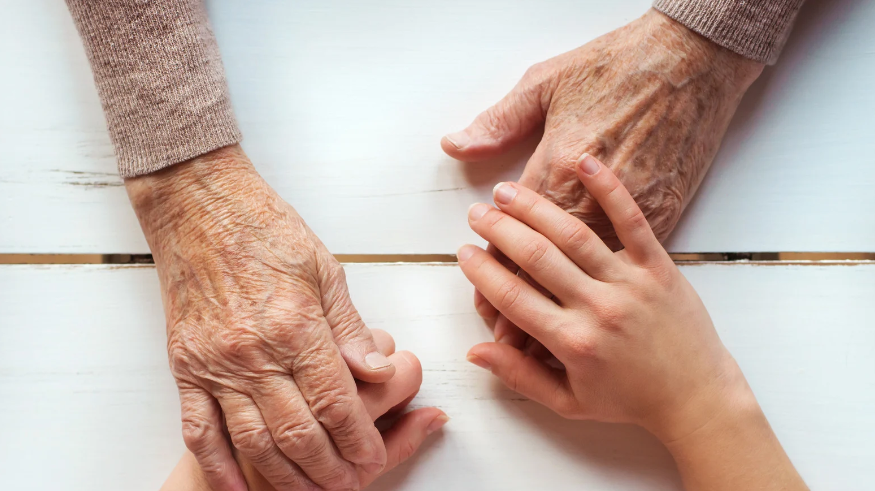
Thinning skin is one of the most common skin problems in seniors. It is caused by a loss of collagen and elastin in the skin. These are proteins that give the skin strength, flexibility, and elasticity. As we age, our bodies produce less collagen and elastin, which causes our skin to become thinner and less able to retain moisture.
6. Pressure Sores
Pressure sores are injuries that occur on areas of the skin that experience pressure over a long period of time. They can be severe and require immediate medical attention. Pressure sores are more common in seniors than any other age group because they often have mobility issues, which can lead to them sitting or lying down in one position for extended periods.
The breakdown of tissue under the skin causes pressure sores. The most common locations for pressure sores are the hips, tailbone, elbows, heels, and backside. These areas of the body tend to bear weight for extended periods of time—especially if you’re unable to move around as much as you used to or if you’re bedridden due to illness or injury.
A compromised skin condition, such as diabetes or obesity, increases the risk of developing pressure sores.
What are the Best Ways to Prevent and Treat Skin Problems in Seniors?
In addition to all the skin problems that come with age, several other factors can affect how our skin looks and feels. What are they? Here are some tips on how to prevent them:
1. Overexposure to the Sun
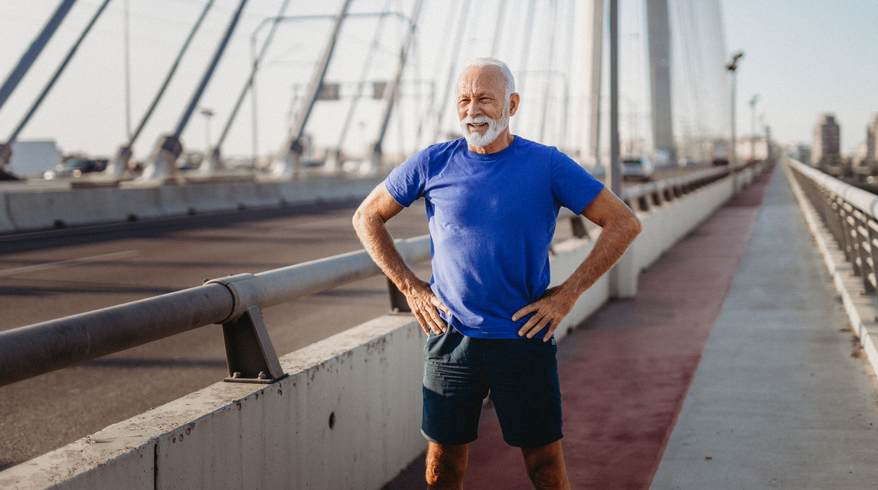
Overexposure to the sun can cause many problems for seniors, including skin cancer and photoaging.
But there are some easy ways to avoid overexposure to the sun.
- You should always wear sunscreen with SPF 30 or higher, especially in the daytime when the sun’s rays are strongest.
- And if you’re spending time outdoors, you must cover your head with a hat and wrap your arms and legs with long sleeves and pants.
2. Smoking and Second-hand Smoke
Second-hand smoke can cause respiratory problems, as well as skin problems such as eczema and sunburn. Smokers are more likely to develop skin problems like wrinkles, dark spots, and more.
For seniors, avoiding smoking is the best way to protect your skin from the dangers of second-hand smoke. If you are a smoker, try to quit—or at least limit the time you spend around smokers or in second-hand smoke. It would help if you also avoid second-hand smoke exposure by going outside for walks with friends.
3. Poor Diet
A poor diet can lead to premature aging and skin problems. We already know that a healthy diet can promote good overall health, but it can also positively affect our skin.
In order to maintain healthy skin, try to eat the following foods:
- Fresh fruits and vegetables
- Whole grains like brown rice, whole wheat pasta, and oatmeal
- Olive oil, coconut oil, and avocados are some of the healthiest culinary fats. They can help your skin stay moisturized and supple. Use these healthy fats when cooking your meals.
Nutrient deficiency is one of the issues that can lead to skin problems in seniors. If your loved one is experiencing issues with their skin and you are concerned that they might have a nutritional deficiency, ask your doctor for advice. It’s vital to get the proper nutrients from our diet if we want to stay healthy.
4. Not Getting Enough Exercise
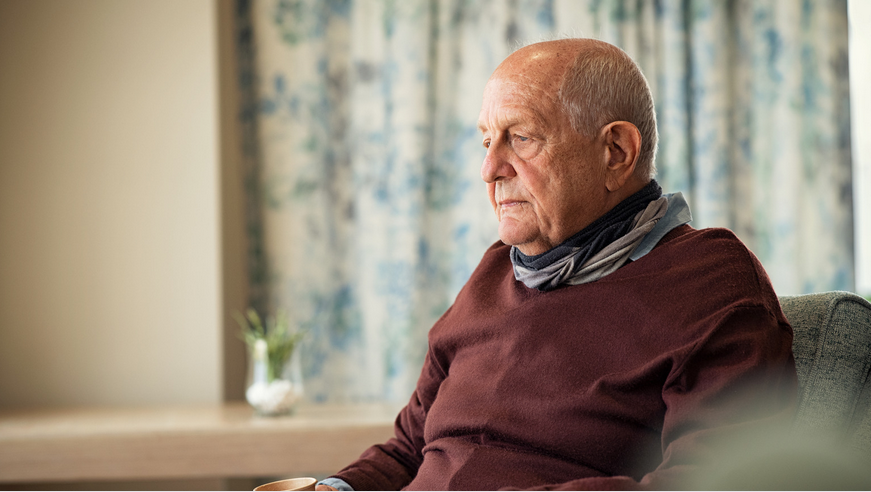
Seniors can benefit from exercise in many ways—including how it affects their skin. Having a routine exercise regimen is an essential part of healthy aging. It’s not just the health benefits, like reducing the risk of heart disease and diabetes; it’s also about your mood, energy, and well-being. But if your loved one isn’t doing any exercise, it can result in more severe problems like heart disease and diabetes.
Releasing endorphins from regular exercise can help reduce stress and ease the pain. It can also increase the blood flow to the skin, which promotes more oxygen and nutrients, leading to healthier skin cells.
5. Not Drinking Enough Water
Not getting enough water can lead to dry skin and dehydration. Dehydration can cause several problems with your skin, including irritation and inflammation.
If your loved one isn’t getting enough water, you should encourage them to drink more throughout the day. If they still aren’t getting enough, check in with their doctor, who may prescribe some medication that provides a little extra boost of hydration.
Conclusion
To keep your skin from getting worse, you should monitor your skin closely. If you see any changes in the condition of your skin and begin to have questions about it, it’s important to talk with your doctor.
If you have concerns about a specific area of your skin, remember that you can always consult with a dermatologist or other medical professional. And if the symptoms of any particular condition become too painful or difficult to cope with, don’t hesitate to reach out.
If you or your loved ones are experiencing skin problems, Serenity Senior Care provides compassionate, high-quality care to help you and your family. Our caregivers can help seniors maintain healthy skin by bathing, grooming, and taking care of their nails.
Contact us to learn more about our elder care services. We are here to help your loved ones find the right match for their needs, whatever they may be.


